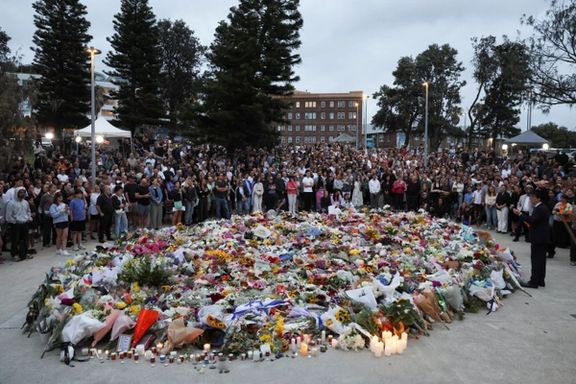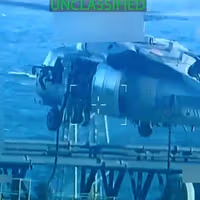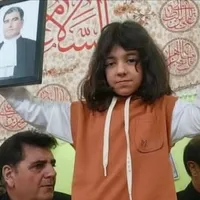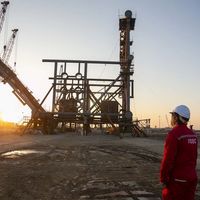Khamenei seeks to avoid responsibility for potential war with Israel
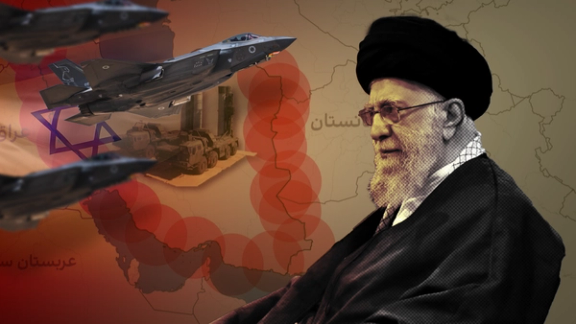
Iran’s Supreme Leader, Ali Khamenei, often deflects responsibility on difficult decisions, issuing vague statements that allows him to avoid blame if and when things go wrong.
Iran International political analyst

Iran’s Supreme Leader, Ali Khamenei, often deflects responsibility on difficult decisions, issuing vague statements that allows him to avoid blame if and when things go wrong.
Following Israel's air strike on Iran, many asked if the leadership in Tehran will respond, and if so how?
In the initial hours after Israel’s Saturday attack, supporters of the Islamic establishment attempted to downplay it, presenting it as if there was no need for retaliation. Silence from IRGC commanders and officials only reinforced the perception that no response was planned.
However, Khamenei’s statements on Sunday introduced doubt among supporters. He refrained from clearly stating whether the Islamic Republic would respond, instead passing the decision to the Supreme National Security Council and the government.
This move suggests Khamenei wants to avoid the responsibility of decision-making on this matter, so that any outcome can be attributed to other institutions.
If the Supreme National Security Council decides on a military response, leading to a conflict with Israel and possibly the US, Khamenei can claim it wasn’t his decision. Alternatively, if no response is chosen, he can tell hardliners that he was prepared for conflict, but other officials opposed it.
Despite his usual direct involvement in state matters, this time—though the constitution grants him responsibility for war and peace, Khamenei is acting cautiously, keeping options open for both scenarios. However, the public, familiar with this behavior over the years, recognizes his attempt to avoid accountability.
This is not the first time Khamenei has taken this approach. During the anti-government protests of November 2019, when a fuel price hike sparked widespread unrest, he distanced himself, claiming he had no role in the decision, which he attributed to other leaders.
A similar pattern occurred in 2018, when Donald Trump announced plans to exit the JCPOA. Khamenei stated he had always opposed the agreement as it stood, suggesting officials had disregarded his advice. Yet it’s well-known that the JCPOA would not have been possible without his approval; Hassan Rouhani and Mohammad Javad Zarif negotiated with US officials under his directive, and all stages of the negotiation were reported to him. Former Foreign Minister Ali Akbar Salehi even revealed that before Rouhani's administration, Khamenei had tasked him with initiating secret talks with the US in Oman.
These examples illustrate Khamenei’s tendency to deflect responsibility during critical moments, delegating difficult decisions to others. Now, confronted with Israel’s recent attacks on Iran’s missile, drone, and air defense facilities—and with the potential for US involvement if reciprocal strikes persist—he is once again refraining from taking a clear stance.
What’s more, he has delegated decision-making to the Supreme National Security Council, all of whose members are his appointees. Thus, the ultimate decision on whether to attack Israel still rests with Khamenei, though he seeks to sidestep direct accountability for potential consequences.
Meanwhile, Mohammad Bagher Ghalibaf, Speaker of the Islamic Consultative Assembly or parliament and one of Khamenei’s close appointees, has stated that Tehran must respond to Israel. This indicates that if a decision to attack is made, it will likely come from Khamenei and IRGC leaders, and other top insiders, including Ghalibaf.
In this situation, the role of institutions like the government will likely be limited to providing funding and carrying out orders.
This presents a significant challenge, as with an empty treasury, the Islamic Republic faces serious obstacles in funding a potential conflict.

This week, Iranian authorities once again closed access to the ancient city of Persepolis and the tomb of one of Persia's most celebrated rulers to prevent Iranians from gathering to honor Cyrus the Great.
“The deployment of law enforcement and security forces in Pasargadae began on October 26, and fencing and concrete barriers have also been set up on the road leading to the tomb of Cyrus,” wrote Seday-e Miras, connected to the state's Ministry of Cultural Heritage, on Sunday.
According to this report, access restrictions to these two historic sites apply only to Iranian citizens until Thursday, while foreign tourists and tour groups can still visit Pasargadae, the original capital of the Achaemenid Empire, and Persepolis, its ceremonial capital, without restrictions.
The report also states that even Persepolis staff must carry special permits to access the site during these days.
Thousands of Iranians and history enthusiasts gather at Cyrus’ tomb and Persepolis every year on October 28.
Since the 1979 Islamic Revolution, the state has increasingly suppressed celebrations of pre-Islamic heritage, viewing them as potential threats to the Islamic state's authority.
For at least a decade, authorities have restricted access to Cyrus’s tomb at Pasargadae, deploying security forces to prevent large gatherings due to concerns that these might escalate into anti-state protests.
In 2016, significant anti-state protests erupted near Cyrus’s tomb, serving as a catalyst that contributed to the broader Iranian protests of 2017–2018.
An anonymous citizen provided Iran International Persian with a video on Sunday, showing blocked road leading to Persepolis.
The Islamic Republic's clampdown has regularly targeted access to Persepolis and other ancient sites on specific dates, including on Nowruz -- the Persian New Year.
Nowruz has roots in ancient Persian and Zoroastrian traditions, predating the advent of Islam by approximately 1,400 to 1,500 years.
“People in Iran are looking for their national identity in a situation where the Islamic Republic is looking to create an umma outside its borders, so commemorating such a day will not be acceptable by the government,” historian and researcher Alireza Manafzadeh told Iran International Persian.
Cyrus II of Persia, known as Cyrus the Great, founded the Achaemenid Persian Empire, recognized as the world’s first superpower due to its vast scale and influence. He unified the ancient Near Eastern states, creating an empire that spanned West and Central Asia—the largest of its time. October 28–31 marks the anniversary of Cyrus’s peaceful entry into Babylon, an event recorded as occurring without conflict according to ancient accounts.
Cyrus the Great Day, though not an official holiday, received informal backing from the Pahlavi dynasty, notably when former king Mohammad Reza Pahlavi restored Cyrus's tomb in 1971 to commemorate the 2,500th anniversary of the Persian Empire.
Although a few government officials and parliamentarians have occasionally expressed support for organizing Cyrus Day ceremonies, the purported effort has faced opposition from the Fars province officials.
On Monday, the daily news outlet Payam-e Ma reported that senior officials in the province are neglecting noticeable ground cracks near Cyrus's tomb while diverting funds to other projects.

Iran’s former Minister of Cultural Heritage, Ezzatollah Zarghami, described the boundaries of historical sites as a significant issue needing resolution.
In late December 2023, he criticized the restrictions by questioning why the residents of Pasargadae cannot build two-story houses or drill wells due to the presence of Cyrus’s tomb and the associated protective regulations. Prior to that, in 2021, Zarghami advocated for amending regulations to ease construction around historical sites, including agricultural wells near Cyrus's tomb.
In recent years, there have been significant concerns regarding the management and protection of Iran's UNESCO World Heritage sites. Reports say that construction activities and insufficient funding for preservation efforts have posed threats to these culturally significant locations.
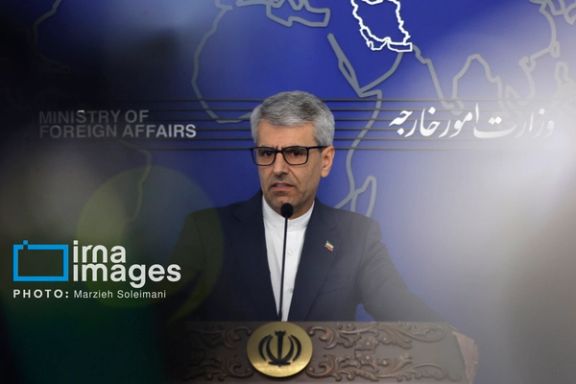
Iranian Foreign Ministry spokesperson Esmail Baghaei said Monday that the nature of Iran's response will be proportional to that of Israel's Saturday attack.
Speaking at a weekly televised news conference, Baghaei said: "(Iran) will use all available tools to deliver a definite and effective response to the Zionist regime (Israel)".
"The nature of our response will depend on the nature of the attack," he said without elaborating.
Iran previously played down Israel's air attack on Saturday, saying it caused only limited damage, with Supreme Leader Ali Khamenei not calling for retaliation during his first speech after the attack.
He said on Sunday that Iranian officials should determine how best to demonstrate Iran's power to Israel, adding that the Israeli attack should "neither be downplayed nor exaggerated".
Scores of Israeli jets completed three waves of strikes before dawn on Saturday against missile factories and other sites near Tehran and in western Iran, Israel's military said.
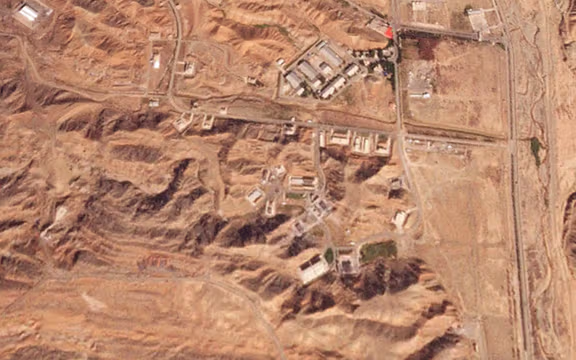
The heavily armed arch-enemies have engaged in a cycle of retaliatory moves against each other for months, with Saturday's strike coming after an Iranian missile barrage on October 1, much of which Israel said was downed by its air defences.
Iran backs Hezbollah, which is engaged in heavy fighting with Israeli forces in Lebanon, and also the Palestinian militant group Hamas, which is battling Israel in the Gaza Strip.
Baghaei noted that Iran has supported all international processes against Israel, such as those at the International Court of Justice and the International Criminal Court, saying, "We believe these processes should continue without interruption."
Also on Monday, the commander of Iran's Revolutionary Guards (IRGC), Hossein Salami, warned Israel of severe and unimaginable consequences for the attack.
In a message commemorating those killed in the recent attack, Salami said that Israeli attacks were thwarted by the country's air defense systems.
Echoing the words of Khamenei, Salami said that the attack indicated a miscalculation on Israel's part.
The Israeli air force conducted the strikes across various Iranian sites early on Saturday, with Netanyahu explaining that the operation’s purpose was to prevent Iran from advancing missile technology aimed at Israel.
The Israeli military said three waves of Israeli jets struck missile factories and other sites near Tehran and in western Iran early on Saturday in retaliation for Tehran's October 1 barrage of more than 200 ballistic missiles against Israel.
Israeli F-35 fighters entered Iran's airspace for the first time in during the Saturday raids. The New York Times and Axios, citing sources, reported that Israel targeted advanced Russian-made S-300 air defense batteries in Iran. "Four S-300 air defense batteries that were in strategic locations and protected Tehran and nuclear and energy facilities in Iran were also attacked."
Playing down the damage, Iran’s military said the Israeli warplanes used "very light warheads" to strike border radar systems in the provinces of Ilam, Khuzestan and around Tehran.
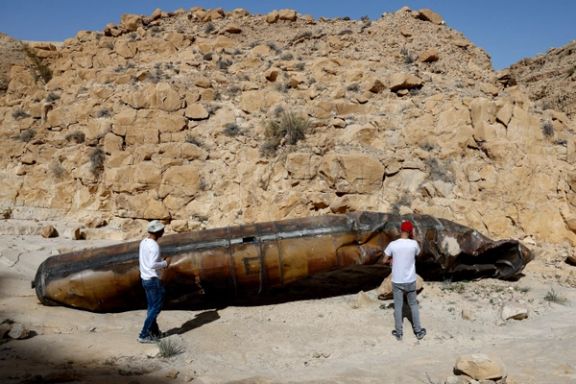
Israel’s retaliatory airstrikes on Iran this weekend caused “significant damage,” despite US President Joe Biden urging restraint and vetoing numerous potential targets, a security expert said.
Farzin Nadimi, a security analyst and a senior fellow at the Washington Institute, told Iran International that Israel’s four-hour bombardment achieved a "very significant result”, in spite of Washington urging the Jewish state to moderate its response to nearly 200 ballistic missiles fired at Israel this month.
Sites including a former nuclear testing site closed down in 2003 and military facilities were hit in the barrage.
He said the attack should not be overestimated, however. "Had Israel intended to target Iran's air defense, including its command-and-control centers, it would have to carry out a more complex, prolonged, and riskier operation."
According to Nadimi, some of those more risky targets are located "under mountains and underground," adding that attacking them is not possible solely with air-launched ballistic missiles.
Reuters reported that the attack came after weeks of the Biden administration tempering the nature of Israel’s response to an attack which many feared would see a regional war erupt.
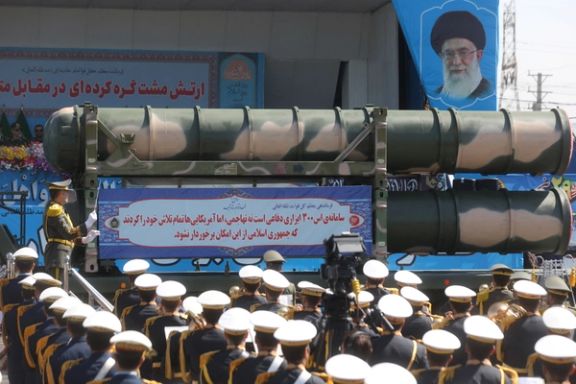
Fearing a major flare-up between the longtime foes, the US President, Joe Biden, and the administration, have been in regular contact with Israeli officials to keep the retaliation “proportional”.
A senior US official told Iran International that the US “does not approve targets, nor do we want to take that responsibility”, however, as the region sits on the edge of an all-out war, Washington has been critical in tempering Israel’s response.
Reuters reported that just hours after Iran’s massive missile barrage, the administration sent an urgent message to Israel urging them to take a breath, and make a calculated response to the two consecutive attacks which sent the entire nation into bomb shelters.
Citing current and former US officials, Reuters reported that the US had done its utmost to influence the nature of the response, making clear it would not support strikes on Iran’s nuclear facilities.
While Israel destroyed key Iranian air defenses and missile production facilities, weakening Iran's military, the attack avoided Iran's sensitive nuclear sites and energy infrastructure, meeting Biden's two top demands.
"US pressure was critically important," said Jonathan Panikoff, a former deputy U.S. national intelligence officer for the Middle East, speaking to Reuters.
"Israeli decision-making would have been far different had the Biden administration not taken measures to push Israel not to strike nuclear or energy sites,” he added.
The Israeli strikes, in addition to targeting air defense sites, hit missile production facilities across Iran.
Commercially available satellite imagery revealed significant damage at the Parchin military complex, one the most expansive and secretive Iranian missile production facilities.
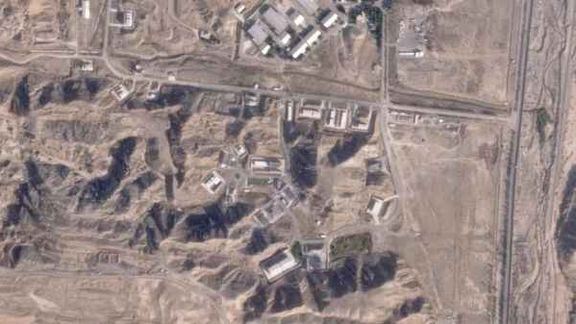
Some of the targets at the missile facilities were sophisticated mixing machines used to make solid fuel for advanced ballistic missiles, such as those that Tehran has used to attack Israel directly.
The Institute for the Study of War assessed that “Iran will likely need months or possibly a year or more to acquire new mixing equipment.”
“The Israel Defense Forces (IDF) inflicted serious damage to the Iranian integrated air defense network during its strikes on Iran on October 25,” its analysis said.
Israeli Prime Minister Benjamin Netanyahu has denied that Israel avoided striking Iranian gas and oil facilities because of US pressure.
"Israel chose in advance the attack targets according to its national interests and not according to American dictates," he said.
President Biden was quick to say that the US supported Israel’s right to defend itself and make clear he supported a “proportionate” retaliation, but made clear he would not stand behind a global war triggering attack on Iran’s nuclear sites.
"In the hours after that attack, we promised serious consequences for Iran," according to one senior Biden administration official speaking to Reuters.
US Defense Secretary Lloyd Austin held around a dozen calls with his Israeli counterpart, Yoav Gallant, since this month’s attack, the two having a strong relationship which has been key since the outbreak of the Gaza war, triggered by Iran-backed Hamas.
"We knew they were getting ready to do something, and he was pushing for it to be proportional," one US official told Reuters of Austin's conversations with Gallant.
The US Secretary of State Antony Blinken was a key player in shoring up global support for Israel’s right to defend itself, with both Western and Arab allies alike, explaining that Israel would have to respond but assuring them that Washington was working to calibrate it.
Iran’s second barrage this year was also significant. Jeffrey Lewis, a non-proliferation expert at the Middlebury Institute of International Studies, said that analysis of satellite imagery showed at least 30 impacts at Israel's Nevatim Airbase alone.
It has raised questions as to whether Israel was trying to conserve dwindling air defenses or simply thought that the hardened facility would be less expensive to repair than to repel each projectile fired by Iran, Lewis told Reuters.
"Israel may have decided that the stockpiles were running low or that interceptors were just too expensive to use on ballistic missiles," Lewis said.
One US official told Reuters that Iran’s nuclear and oil sites were on the list of potential targets, but to counter this, Washington worked to impose oil sanctions targeting Iran's so-called "Ghost Fleet" to offer an alternative measure to the Israelis who wanted to damage Iran's oil revenues with a kinetic strike.
The United States had worked to bolster Israel's air defenses ahead of its Saturday strike on Iran including a rare US deployment of the Terminal High Altitude Area Defense system, or THAAD, to Israel along with about 100 US soldiers to operate it.
But it came on the condition of knowing the plans beforehand, according to Reuters, hashed out in a call between Israeli Prime Minister Benjamin Netanyahu and Biden on October 9, in which a general plan was shared.
The US also shored up support from Europe which levied more sanctions on Iran Air, and showing the world that US had Israel's back were other key elements of this "package" of alternative measures, while trying to avert an all-out war.
Since the October ballistic missile bombardment, the US military also carried out a strike against the Iran-aligned Houthis in Yemen with long-range B-2 stealth bombers, another message to show it was working against Tehran.
As the threat of an Iranian response looms large, US support continues, with Israel playing ball with its most powerful and needed ally. ”If Iran chooses to respond once again, we will be ready, and there will be consequences for Iran once again. However, we do not want to see that happen," the senior Biden administration official told Reuters.
Mike Turner, a Republican congressman who chairs the House Intelligence Committee recently told Fox News, "They've limited the ability for Israel to really impact Iran and its ability to continue to threaten Israel."
Aaron David Miller, a senior fellow at the Carnegie Endowment for International Peace, said the approach may not be the same should Donald Trump win the upcoming elections.
"If Trump wins this election, I think that the Israelis will perhaps even look for opportunities in the months ahead, now that they've demonstrated that they can get away with dismantling Iran's air defense systems and essentially doing a good deal of damage," Miller said.
Since October 7 last year, when Hamas, designated a terror group in countries including the US and UK, attacked Israel, Iran’s militias around the region have risen up in support of the Gaza-based militia.
Israel has endured attacks from Yemen’s Houthis, Lebanon’s Hezbollah, and militias in Iraq, the West Bank, and Syria, in addition to direct attacks from Tehran.

Iran’s state broadcaster (IRIB) sparked criticism by downplaying Israel’s overnight strikes on Iranian military targets Saturday while encouraging further escalation of the conflict.
In a program aired Saturday, the presenter mockingly challenged Israel to join Iran’s bonfire night, asserting that the firecrackers used by Iranian youth during the annual Charshanbeh Souri festival are far louder than Israel’s attack on Tehran that day.
“What if there’s another strike in response in case of an Iranian counterattack, turning the situation into a game of ping-pong," the conservative publication Asr-e Iran addressed the state broadcaster in an article. "What if [Israel] becomes more emboldened after the US election? Can we still call it a ‘firecracker game’ then?”
The article argued that Israel had never conducted an operation of this scale against the Islamic Republic and was openly taking responsibility for the action.
Israel is widely known for conducting numerous clandestine operations in Iran, including explosions at military and nuclear facilities over the years and the assassination of a Hamas leader, often without officially acknowledging responsibility.
Iran's state broadcaster is run by ultra-hardliners, many of whom advocate a tougher stance against Israel. They have also been pushing for a change in Iran's defense doctrine, meaning to start building a nuclear bomb.
In his first response to the Israeli attack on Sunday, Iran's Supreme Leader Ali Khamenei refrained from an outright call for retaliation and delegated the decision to unspecified authorities. He said the strikes' impact should neither be exaggerated nor downplayed.
Before his reaction, the state broadcaster had several guests who did exactly that. Hardline politician and former diplomat Mohammad-Javad Larijani appeared on a program and called Israeli strikes scandalous due to its lack of impact.
In another program aired shortly after the strikes, the presenter spoke emphatically about Iran’s response to Israel’s attack, as though it had already been decided.
"A few revolutionary-looking presenters and fake celebrities created by IRIB...claim that Iran's response to Israel’s insolence is certain," Mostafa Faghihi, editor of a major conservative website, wrote on X. "Doesn’t this country have a military command or Supreme National Security Council?"
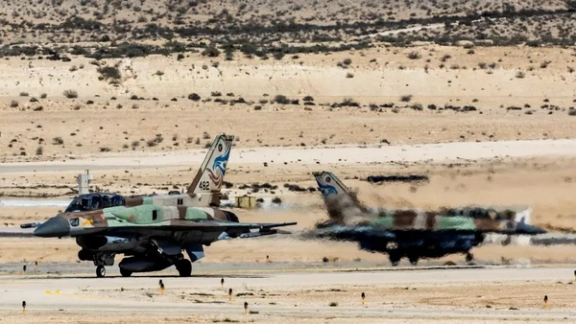
Israeli fighter jets entered Iranian airspace Saturday in a large-scale operation targeting critical military sites, CNN reported on Sunday, one day after Iran International reported Israeli F-35s had entered Iran's airspace for the first time and bombed targets near Tehran.
The CNN report cited one former and one current Israeli official saying the Israeli warplanes breached Iranian airspace as part of the airstrikes on Iran early Saturday.
While around 100 jets were involved in the mission, only some entered Iranian airspace, the report said.
Iran International was the first media outlet which reported that Israeli jets flew over Tehran, targeting sites in the region. Social media users in Tehran also reported hearing loud sounds, believed to be the jets in action.
Hours after the Israeli airstrikes, the General Staff of Iran’s Armed Forces said that Israeli aircraft used airspace controlled by the US military in Iraq to launch several long-range air-launched missiles.
The Iranian military's statement added that Israel's strikes resulted in "limited and minimal damage" thanks to the "timely performance of the country’s air defenses," with "a few radar systems damaged, some of which were immediately repaired, while others are currently under repair."
However, satellite images from Planet Labs and another commercial provider, analyzed by military experts, reveal extensive damage to key Iranian sites, underscoring the significant impact of Israel’s operation.
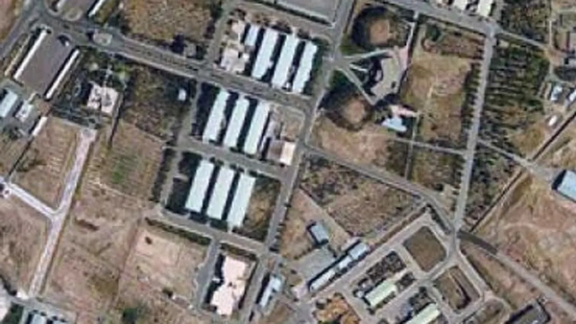
The targets include missile production facilities, missile fuel mixing plants, and sites related to nuclear weapons development. Key sites affected include the Taleqan nuclear facility near Jajrood Dam, three missile motor production buildings, the Parchin military complex, and two buildings in the Khojir complex outside Tehran.
Ali Khamenei, Supreme Leader of the Islamic Republic, responded to the attack on Sunday, saying, “Israel’s aggression two nights ago should neither be exaggerated nor underestimated; Israel’s miscalculation must be corrected, and the strength, resolve, and innovation of the Iranian people and the country’s youth should be made clear to them.”
“It is up to the officials to determine how to convey the power and resolve of the nation to Israel and to carry out what is in the best interest of this nation and country,” Khamenei added.
President Masoud Pezeshkian called the operation an act of aggression and accused the US of provoking Israel. Pezeshkian said that “Iran does not seek war” but promised a “fitting response to Israel’s actions.” He added that Western powers had previously assured Tehran of peace in return for restraint but said “these promises were entirely false.”
Foreign Minister Abbas Araghchi similarly said on Sunday that "Iran will not leave the Israeli aggression unanswered," relaying the statement to his Omani counterpart in a call, according to Iran’s Foreign Ministry.
Iranian media on Sunday confirmed the death of a civilian named Allahverdi Rahimpour who had been injured in the strikes, raising the death toll to five. Conflicting reports described him as either a contractor company's security guard or a civilian unaffiliated with the military. Previously confirmed fatalities included four members of Iran’s army: Sajjad Mansouri, Mehdi Naghavi, Hamzeh Jahandideh, and Mohammad Mehdi Shahrokhi-Far, two of whom worked for Iran's missile production units.
Prime Minister Benjamin Netanyahu asserted on Sunday that Israeli airstrikes over the weekend damaged Iran’s missile production and defense capabilities, affirming the operation’s success in achieving its objectives.
IDF Chief of Staff Herzi Halevi also said in a Saturday assessment that Israel only showed some of its abilities.
“We have the ability to do much more. We hit strategic systems in Iran… and we will see how things develop now. We are ready for all scenarios on all fronts. Our message is a very clear message, and it is connected to the things that have happened across the Middle East in recent months. We know how to reach and hit any threat, in any place, at any time,” Halevi noted.
Israel’s public broadcaster Kann News reported, citing a knowledgeable source, that “the US estimates that Iran is still able to respond to the Israeli airstrikes with the same magnitude as its Oct. 1 attack, that is, launch hundreds of ballistic missiles against Israel.” However, the report noted that the US assessment suggests that the damage from the Israeli strikes on Iran’s missile production capacity may impact the scale and nature of Iran's response.
